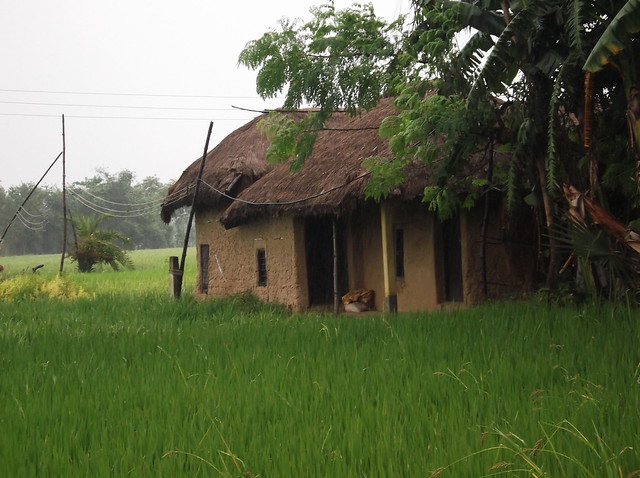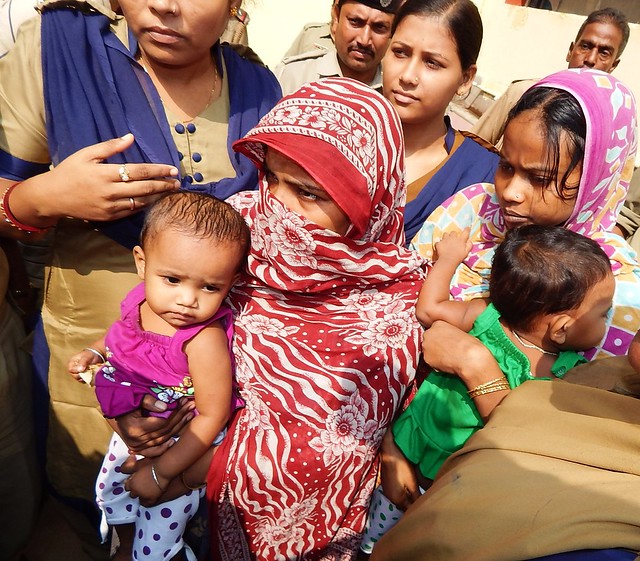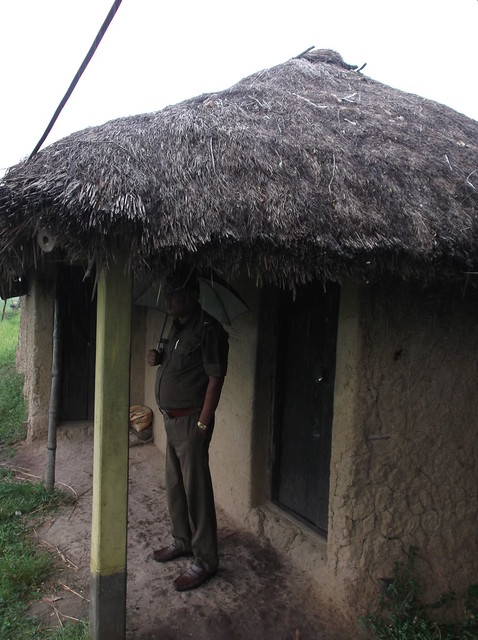This is the second part of our three part series on Burdwan blast incident.
You can read the first of this series ‘Shock, disbelief and anger: Khagragarh caught unawares’ here.
By M Reyaz and Zaidul Haque, TwoCircles.net,
Burdwan/Simulia (West Bengal): The repercussion of the October 2 blast at Khakhragarh were felt more in Krishnabati village – popular as Simulia – some 38 km away. Shaken, the people are scared of what they termed as the unexpected link that their sleepy village has with the Khakhragarh blast.
Few kilometres off the Burdwan-Katwa road, under the jurisdiction of Mangalkote police station, Simulia is a primarily Muslim dominated village, almost 80% of the population. Most of them are very poor and many still live in mud houses, except for a few well-off, who work outside and have now built RCC houses. Most of the villagers are paddy cultivators. Although the village has a larger Muslim population, the Hindus are better off economically, evident from the fact that the Simulia Gram Panchayat has just three Muslim members out of total 10.

The girls’ Madrasa at Simulia village under Mangalkot PS of Burdwan, alleged terror training centre
It sent shock waves in the village when police claimed, Razia Bibi and Alima Bibi, the two women arrested from the house at Khakhragarh, site of the blast that killed two persons and injured another, first studied and then taught at an institution at Simulia.
Investigating agencies believe, a four room mud structure with thatched roof was a terror training camp or a ‘Training Center’ of the new terror module, supported by banned Bangladeshi organisation Jamaat-ul-Mujahideen Bangladesh (JMB). The location of this Madrasa Lil Banat, the purported training center, almost on the outskirts of the village, surrounded by huge paddy fields from two sides and two ponds with a hut on the other side just added to the suspicion.
In fact, one cannot see the mud structure from the main road. A narrow by lane from the road cutting across the village in between the pond and the field lead to the Madrasa, about 50 steps away, but otherwise camouflaged between trees.
Due to festival vacation, the Madrasa was closed, but the police have since “sealed” it. When TCN team reached the village on October 12, police personnel – a sub-inspector, a constable and two civic volunteers – were sitting under a shade on the other side of the road as it was raining. Police took the TCN team to the ‘Madrasa Lil Banat’, but said we could not go inside.
Simulia falls under Mangalkote Police Station, infamous for illegal country made arms and ammunitions, used by political parties of all colours during elections and also sold to anti-social elements. A local journalist said, “Making katta (country made pistols) and bombs is almost a cottage industry here that has been allowed to proliferate by different political dispensations.”
People first refused to talk with media persons but our perseverance paid off as we hung around for more time. But even the residents of the house nearest to the purported training centre denied any knowledge. The madrasa was fairly new and most of its students as well as teachers were outsiders, who hardly interacted with the villagers, they claimed.

Razia Bibi and Alima Bibi, with their toddler in police custody. According to Investigating Agencies, they first studied and then taught at the Simulia Madrasa and are part of the terror plot.
The madrasa land belongs to Borhan Seikh, whose wife also taught there, but it is reportedly started by Sheikh Yusuf of Beldanga. Both of them are now absconding, and police believe that they played an instrumental role in the terror-module based on call details of the mobile phones seized at the blast site.
Simulia villagers too expressed anger over what they termed as “misreporting of facts.” For example, Times of India reported the CID team had found technological equipment within the mud structure even though it has no electric connection.
Sanjoy Kundu, Mangalkote OC, refused to speak on the matter hence there could be no official corroboration about this report. But villagers who claimed they had been inside the madrasa premise when the police first raided the place, said, the place indeed had power connection and also had ceiling fans. “Having computer or CDs in not a big deal these days,” the villagers said, adding, “to the best of our knowledge, this was a maktab (primary school) for girls.”
Meanwhile, the NIA, that has now taken up the investigation reiterated in a statement that this was the madrasa where “the accused were radicalised in violent Jehadi ideology.”
Police believe all the accused are part of a sleeper cell.
Shocked, the villagers still can’t believe their village played host to terror suspects. A woman, who did not want to be named, said, “Those who were indulging in making bombs have already died or have been arrested at the spot. However, there is fear that police might incarcerate several of our people.”
Suspect arrested or incarceration?
Abdul Hakim alias Hassan (28), arrested from the bomb blast site in Khagragarh, has no past criminal record, family members and villagers of Deucha of Birbhum district claim.
Hassan is the second son in the family of five brothers and three sisters; his father Sheikh Shajahan is a local hawker who sells garments in the local market. His elder uncle Muhammad Mohsin told TwoCircles.net over phone that Hakim had failed in the Madhyamik (Secondary) examinations and after dropping from school lived mostly at his maternal uncle’s house at Umarpur in Murshidabad. He got married there. “I still can’t believe my nephew is involved in terror activities,” he said. His brother, Sk Sadikul told TCN that Hakim had last come home about three months back on hearing his mother illness.

Locked Madrasa at Simulia village
News Magazine Tehelka reported a version of the family and villagers of another suspect Abul Kalam Sheikh, who hails from Mongolkote village but ran away from home about eight years ago. It too varied from the police version, according to which he is a Maulvi, who later joined the banned terror outfit JUM.
Family said, he studied till class IX, but never went to any Madrasa. According to the Tehelka report, he had not come home for six years, but villagers who frequent Burdwan town did meet him on and off, where he was seen working as rag picker or sometimes as a rickshaw puller.
The local investigating agencies are hence facing criticisms from different quarters for alleged ‘cover up’ and the district police chief SMH Meerza was even rapped by the visiting NIA team. For, if indeed there was a training camp, how was it possible that it did not draw attention from either the villagers or Mangalkote Police, especially the “civic volunteer” policeman?
Don’t drag the community
Maulana Mohammad Ali Midda, member of the Rabita-E Madaris-e-Islamia Arabia, under which madrasas in the country are enlisted, and Assistant Secretary of the District Unit of Jamiat-Ulama Hind believes that in a way it was good that the blast happened as it “not only killed the terrorists, but also exposed their nexus.” Else this might have resulted in “bigger damage”.
He, however, cautioned against dragging the entire community in what he termed as a “heinous crime”. “Terrorists have no religion. We never supported terrorism and it would be wrong to associate it with Islam,” he told TwoCircles.net.
TCN Special Series: Burdwan Blast and After

